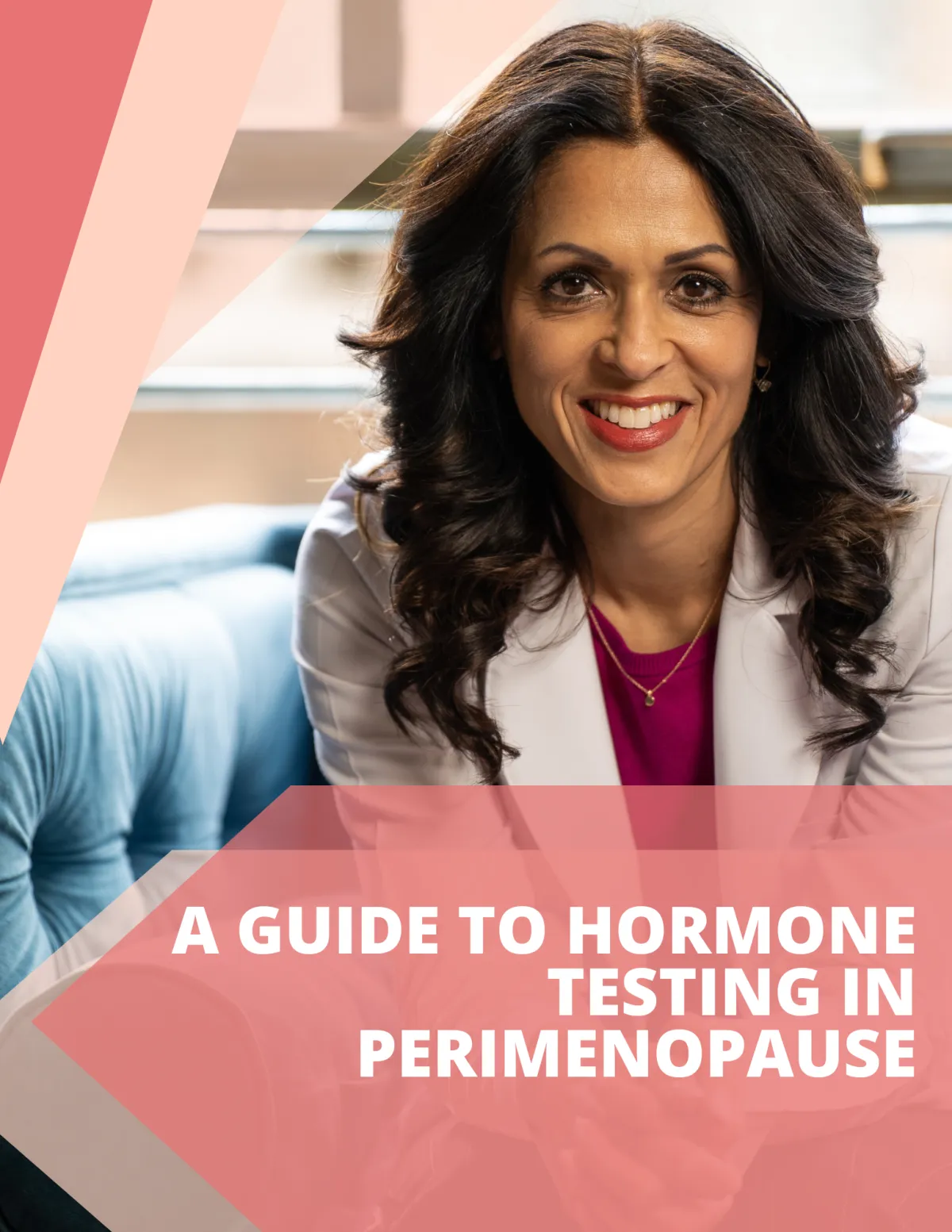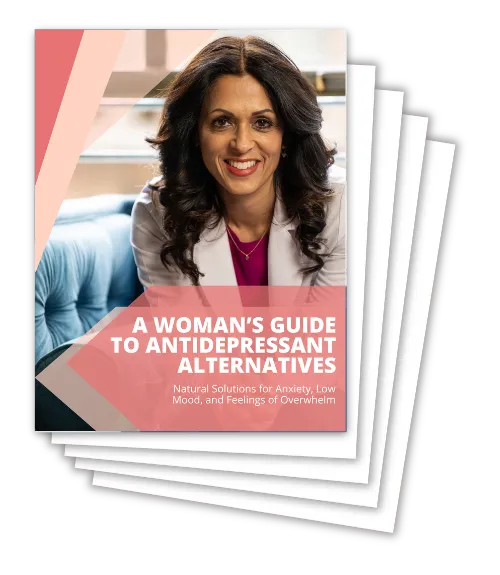The Ultimate Guide to Hormone Testing in Perimenopause

Are you lying awake at 3 AM wondering why you can't sleep in addition to dealing with mood issues and weight gain out of nowhere? Has your doctor dismissed your concerns with "it's just hormones" or "your labs look normal"?
Most healthcare providers receive minimal training about perimenopause and rely on outdated testing methods that capture only a fraction of what's happening in your body.
Women everywhere are told their symptoms are "just part of aging" or "all in your head," leaving them frustrated and without the answers they desperately need.
What they're missing is that standard hormone panels fail to show how hormones are metabolized in your body or capture the complex interplay between your reproductive, thyroid, and stress hormones.
The truth is, comprehensive hormone testing exists that can reveal the root causes of your symptoms and guide targeted solutions, helping you reclaim your energy, mental clarity, and emotional balance without being dismissed or misunderstood.
WHAT I WISH EVERYONE KNEW ABOUT HORMONE TESTING
This Essential Guide Will Show You…

WHICH hormone tests reveal the complete picture of your hormonal health beyond standard blood work
WHEN to schedule testing during your cycle for the most accurate results
WHAT to ask your doctor when conventional testing shows "normal" despite your symptoms
WHY traditional hormone panels often miss critical information about how your body processes hormones
HOW to interpret comprehensive test results to create targeted solutions for your unique hormone pattern
WHICH hormone metabolites matter most for understanding mood swings, sleep issues, and energy levels
Dr. Tara Scott, M.D, FACOG, FAAFM, ABOIM, CNMP

Dr. Tara Scott is a triple board-certified expert in hormone health, integrative & functional medicine with over 20 years of experience. Known as the "Hormone Guru," she is devoted to helping women address hormonal imbalances through personalized, evidence-based care.
A Northeast Ohio Medical University graduate and an Associate Clinical Professor, Dr. Scott combines her medical expertise with academic leadership, mentoring future physicians, and directing women's health courses at the University of California Irvine. After years as a traditional OB/GYN, she transitioned to integrative medicine to uncover the root causes of hormonal issues, offering holistic and patient-centered treatments.
Dr. Scott educates and empowers women worldwide via workshops, courses, and resources through her platform, Hormone Guru. As a global speaker, industry consultant, and media contributor, she inspires change in women's healthcare, fostering wellness, prevention, and transformation for countless lives.
Have You Experienced Any Of These?

Stress & Anxiety

Low Mood & Irritability

Brain Fog

Sleep Issues

Chronic Fatigue

Feeling Overwhelmed

Weight Gain

Digestive Issues
HERE'S WHAT MOST WOMEN DON'T KNOW...
3 Little-Known Facts About Hormones Testing

"Hormones Fluctuate Too Much to Test..."
Why do doctors avoid comprehensive hormone testing?
Fluctuation is precisely why timing and method matter. Conventional medicine often dismisses hormone testing because "levels fluctuate too much to be meaningful." This outdated approach misses crucial information. In reality, testing on specific days of your cycle (like day 21 for progesterone) combined with multiple testing methods captures these dynamic changes, revealing important insights about your hormone metabolism and relationships. Comprehensive testing through blood, saliva, and urine provides a complete hormonal map that standard panels miss entirely.

"Normal Labs" Don't Tell the Whole Story
Why do symptoms persist when tests look "normal"?
Conventional lab tests compare your results to broad population averages that include women of all ages and hormone states. What's worse, standard labs don't usually even bother to test reproductive hormones at all, only your TSH for thyroid and not the other thyroid markers. This limited approach means your doctor may say you're "normal" even when your hormones aren't in optimal range or you may have autoimmune antibodies present. Comprehensive hormone testing doesn't just measure if you're within range – it examines the crucial relationships between hormones and their metabolites.

Hidden Metabolic Imbalances
Why can't you lose weight despite eating well and exercising?
Metabolic hormone testing reveals what basic panels miss. Most doctors only check fasting glucose while ignoring crucial markers like A1C, fasting insulin, and hunger hormones such as leptin and ghrelin. These overlooked hormones could be causing your mysterious weight gain, stubborn belly fat, afternoon crashes, and constant fatigue—often alongside hidden thyroid issues. Comprehensive metabolic hormone testing looks beyond basic blood sugar to uncover the complex interplay between your energy, appetite, and stress hormones that conventional testing routinely misses, explaining why diet and exercise alone aren't working.